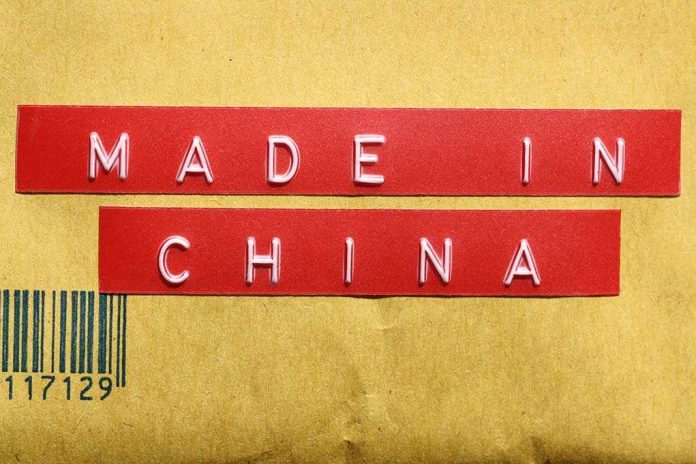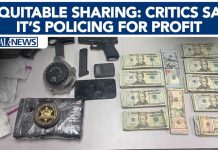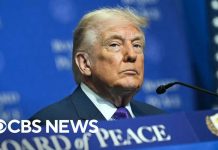
Federal agents intercepted a massive shipment of counterfeit Labubu dolls at Seattle airport, exposing the dangerous scale and clever tactics of global toy smugglers targeting American families.
Story Snapshot
- U.S. Customs seized over 11,000 fake Labubu dolls worth $513,937 disguised as LED bulbs at Seattle-Tacoma International Airport.
- The shipment originated from South Korea and violated federal intellectual property laws; dolls are slated for destruction.
- Consumer safety warnings highlight choking hazards and risks of counterfeit toys.
- No arrests have been made; investigation into supply chain continues.
Counterfeit Toy Smuggling Exposed at U.S. Ports
U.S. Customs and Border Protection officers at Seattle-Tacoma International Airport confiscated a shipment containing more than 11,000 counterfeit Labubu dolls, falsely labeled as LED bulbs. Valued at over $500,000, this haul marked one of the largest toy counterfeiting cases in recent years. The dolls, popular among collectors, were smuggled from South Korea in a sophisticated attempt to evade detection and skirt U.S. intellectual property laws. Officials revealed plans to destroy the seized items to prevent them from reaching consumers.
CBP seizes fake Labubu dolls valued at over $500K and disguised as light bulbs at Seattle airport https://t.co/mMMU463brx
— ConservativeLibrarian (@ConserLibrarian) September 3, 2025
Labubu Dolls: From Cult Collectible to Counterfeit Target
Labubu dolls, originally created and distributed by Chinese toy giant Pop Mart, have become a prime target for counterfeiters due to soaring international demand. The rise in fake toy trafficking has forced U.S. customs to step up scrutiny of shipments from Asia, especially at major entry points like Seattle. Counterfeit Labubu dolls have prompted new warnings from the Better Business Bureau and the U.S. Consumer Product Safety Commission, which flagged choking hazards and urged buyers to verify authenticity using QR codes and holographic stickers. Prior incidents involving fake toys and plush keychains underscore the persistence of this threat to families and collectors.
Stakeholders and Their Roles in Combating Counterfeiting
The seizure spotlights several key actors. U.S. Customs and Border Protection leads enforcement and is responsible for protecting American consumers from unsafe and illegal imports. Pop Mart, as the original distributor, relies on government action to defend its intellectual property and maintain brand value. The Consumer Product Safety Commission and Better Business Bureau have issued public alerts, educating families about the risks of counterfeit toys and fraud. The smugglers, still unidentified, sought to profit by bypassing regulations and putting U.S. children at risk. Each party’s actions reflect a critical interplay of consumer protection, business interests, and legal enforcement.
Current Status and Ongoing Investigation
Authorities announced the seizure publicly on September 3, 2025, confirming that the dolls will be destroyed to prevent any chance of distribution in the U.S. market. While no arrests have been made, CBP continues to investigate the shipment’s origin and the broader distribution network. The dolls remain in federal custody as officials work to trace the supply chain and identify those responsible for this large-scale smuggling operation. Recent statements from CBP and CPSC reinforce the seriousness of the case and highlight ongoing efforts to safeguard consumers.
Economic, Safety, and Industry Impact
Removing these hazardous counterfeit toys from circulation delivers immediate benefits to families, retailers, and legitimate businesses. The economic blow to smugglers and counterfeiters serves as a deterrent and signals increased vigilance at America’s ports. Over time, such enforcement may help restore trust in the toy industry and prompt closer collaboration between CBP, CPSC, and manufacturers. However, the incident also highlights the need for ongoing awareness, as counterfeiters adapt and seek new ways to evade detection. Consumers are advised to remain alert and rely on verified retailers to protect children from unregulated and unsafe products.
Expert Commentary and Broader Implications
Industry experts recommend that buyers carefully inspect toys for authenticity markers to avoid fakes and potential hazards. Intellectual property analysts emphasize the importance of robust customs enforcement in maintaining safe supply chains. Consumer safety advocates warn that unregulated toys undermine trust and can pose real dangers to children. Some experts call for harsher penalties and improved international cooperation to address the growing problem of counterfeiting. The consistent reporting from major media and official agencies underscores the urgency of maintaining vigilance and defending conservative values of safety, property rights, and consumer choice against global smuggling operations.
Sources:
Over $500,000 Worth of Fake Labubu Dolls Seized at Seattle Airport by US Customs
Labubu counterfeits worth $500K seized at airport
CBP seizes fake Labubu dolls valued over $500K disguised as light bulbs at Seattle airport
11,000 counterfeit Labubu dolls worth $500,000 seized in Seattle









